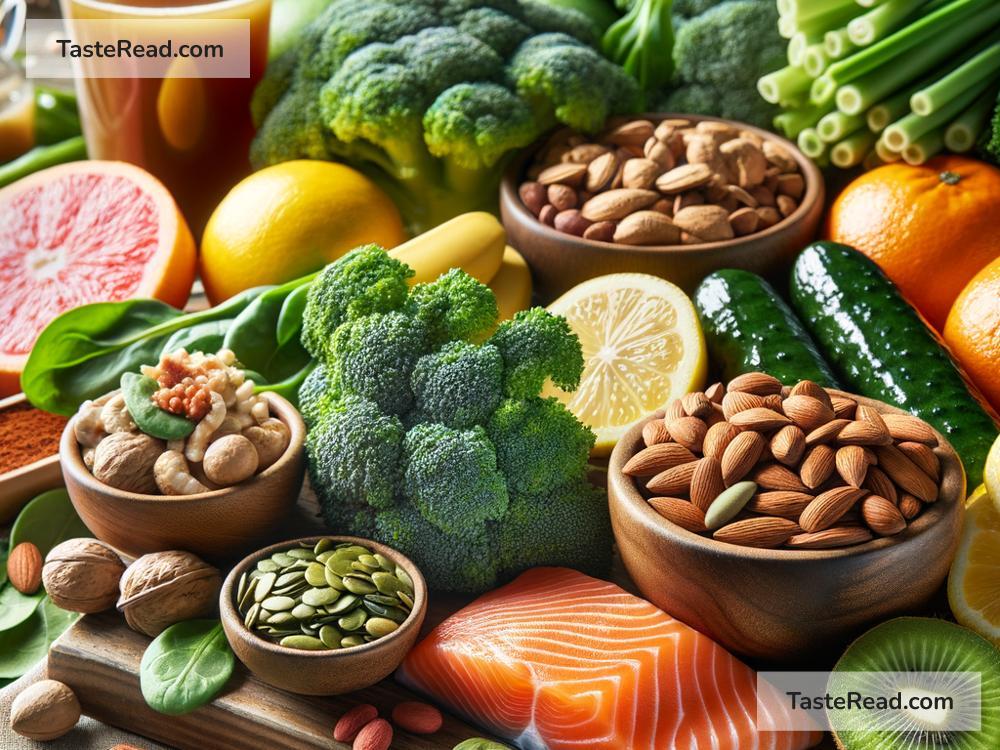Foods That Improve Cartilage Elasticity
Cartilage plays a crucial role in maintaining the health and functionality of our joints. It’s the flexible tissue that cushions your bones and helps your body move smoothly without pain or stiffness. However, over time, cartilage can wear down or lose its elasticity, leading to joint discomfort and conditions like arthritis. The good news is that certain foods can support cartilage health and help maintain its elasticity. In this article, we’ll explore simple dietary choices that can help keep your joints healthy and moving freely.
What Is Cartilage Elasticity, and Why Is It Important?
Cartilage elasticity refers to the ability of cartilage tissue to bend, stretch, and return to its original shape. Elastic cartilage acts like a shock absorber for your joints, reducing friction between bones when you move. Without proper elasticity, cartilage can become stiff or brittle, potentially leading to joint pain, swelling, or even reduced mobility.
The good news? The right nutrients can strengthen cartilage tissue, increase elasticity, and slow down wear and tear.
1. Omega-3 Fatty Acids: Anti-Inflammatory Power
One of the best ways to support cartilage is by adding foods rich in omega-3 fatty acids to your diet. Omega-3s have powerful anti-inflammatory properties, which help reduce swelling around damaged cartilage and ease joint pain.
Top choices for omega-3 foods include:
– Fatty fish: Salmon, tuna, mackerel, and sardines.
– Chia seeds and flaxseeds: Great plant-based sources of omega-3s.
– Walnuts: Perfect for snacking and boosting your cartilage health.
Regularly eating omega-3-rich foods ensures your cartilage remains flexible and less prone to inflammation.
2. Vitamin C: Building Strong Cartilage
Vitamin C is essential for cartilage elasticity because it helps your body produce collagen. Collagen is the main protein found in cartilage and is responsible for its strength and stretchiness. Without enough collagen, cartilage can weaken, making it more vulnerable to damage.
Foods high in vitamin C include:
– Citrus fruits: Think oranges, grapefruits, and lemons.
– Berries: Strawberries, blueberries, and raspberries are also excellent choices.
– Bell peppers: Especially red and yellow varieties, which are packed with vitamin C.
– Broccoli and spinach: Leafy greens provide both vitamin C and other joint-friendly nutrients.
Make sure to eat fresh fruits and vegetables daily to support collagen production for healthy, elastic cartilage.
3. Collagen-Rich Foods: Direct Support for Cartilage
Collagen is the building block of cartilage, so eating collagen-rich foods directly supports its maintenance and repair. While your body produces collagen naturally, this process slows down with age, which makes eating collagen-boosting foods even more important.
Top food sources of collagen include:
– Bone broth: Made by simmering animal bones, bone broth contains collagen that’s directly beneficial for your joints.
– Chicken and fish: Look for cuts with connective tissue since they contain more collagen.
– Egg whites: These are an easy way to add collagen to your diet.
Adding these foods to your meals helps restore cartilage elasticity and protect your joints as you age.
4. Sulfur-Rich Foods: Support Joint Repair
Sulfur is a mineral that plays a key role in creating cartilage tissue. It’s involved in the production of glucosamine and chondroitin, two compounds that maintain cartilage elasticity and repair damage.
Sulfur-rich foods include:
– Garlic: Packed with sulfur and antioxidants.
– Onions: Another flavorful way to add more sulfur to your meals.
– Eggs: Especially the yolks, which are full of nutrients beneficial for cartilage.
– Cruciferous vegetables: Broccoli, cauliflower, and cabbage are excellent choices.
Incorporating sulfur-rich foods into your diet boosts cartilage repair and keeps joints flexible over time.
5. Antioxidants: Fighting Cartilage Damage
Free radicals are unstable molecules that can damage cartilage and reduce its elasticity. Antioxidants fight these harmful molecules, preventing wear and tear on your joints.
Antioxidant-rich foods include:
– Green tea: Contains catechins, which protect cartilage from breakdown.
– Dark chocolate: Look for at least 70% cocoa for maximum antioxidant benefits.
– Nuts and seeds: Almonds, sunflower seeds, and flaxseeds are full of antioxidant compounds.
– Colorful fruits and vegetables: Brightly colored produce like carrots, tomatoes, spinach, and berries are loaded with antioxidants.
Eating a variety of antioxidant-rich foods keeps cartilage strong and elastic while protecting against damage.
6. Water: The Unsung Hero
Cartilage contains a lot of water, which is essential for cushioning joints and maintaining elasticity. When you’re dehydrated, your cartilage can dry up and lose its ability to stretch and absorb shock. Staying hydrated is as simple as drinking enough water throughout the day. You can also eat water-rich foods like cucumbers, watermelon, and celery to boost hydration.
Conclusion
Your diet has a big impact on the health and elasticity of your cartilage. By including omega-3s, vitamin C, collagen-rich foods, sulfur-rich options, antioxidants, and staying hydrated, you can protect your joints and promote smooth, pain-free movement. Small meal tweaks can make a huge difference in preventing cartilage wear and tear, especially as you age.
To keep your cartilage healthy, start building a joint-friendly diet today—and enjoy the benefits of strong, flexible joints for years to come!


